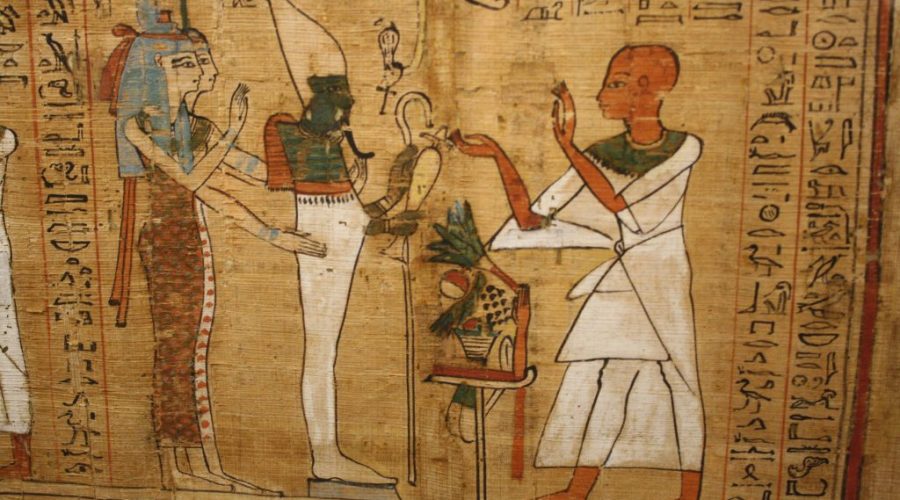Death in Ancient Egypt
To the ancient Egyptians, death was not the end of life but only the beginning of the next phase in an individual’s eternal journey. There was no word in ancient Egyptian which corresponds to the concept of “death” as usually defined, as “ceasing to live”, since death was simply a transition to another phase of one’s eternal existence. In […]
Magic & Religion
The priests of the temple cults understood this but their function was to honor and care for their particular deity and ensure a reciprocity between that god and the people. The priests or priestesses, therefore, would not invoke Heka directly because he was already present in the power of the deity they served. Magic in […]
Magic in Ancient Egypt
In ancient Egypt, if a woman were having difficulty conceiving a child, she might spend an evening in a Bes Chamber (also known as an incubation chamber) located within a temple. Bes was the god of childbirth, sexuality, fertility, among other his other responsibilities, and it was thought an evening in the god’s presence would […]
Religious Texts & Judgment by Osiris
Instructions on how one would animate a shabti in the next life, as well as how to navigate the realm which waited after death, was provided through the texts inscribed on tomb walls and, later, written on papyrus scrolls. These are the works known today as the Pyramid Texts (c. 2400-2300 BCE), the Coffin Texts (c. 2134-2040 BCE), and The Egyptian Book of […]
Cultural & Theological Background of Mummification in Egypt
Many myths and falsehoods concerning the Egyptian practice of mummification have been promoted to the general public in movies, television shows, and documentaries. While these offerings are entertaining and fascinating to watch, the purposes and details regarding the ancient preparation of the dead were quite complex, technically and culturally. Mummification was not merely done to protect the […]
The concept of immortality
Egyptian culture incorporated this concept of immortality quite nicely into their religious system through the Osiris myth. In fact, a minority of historians believe that Osiris was an actual real human being at one time in Egyptian history—perhaps an ancient ruler who experienced a civil war during his reign, and who received glory and deification post–mortem as the ancients often […]
God’s Wife of Amun
The position of God’s Wife of Amun was one of the most politically powerful and spiritually significant in later Egyptian history. Elevated from a figurehead in the New Kingdom (c.1570-1069 BCE), the God’s Wife of Amun would hold power equal to a pharaoh by the Third Intermediate Period of Egypt (c. 1069-525 BCE) when the God’s Wife would rule Upper Egypt. Although some scholars maintain that […]
God’s Wifes After Ahmose-Nefertari
The God’s Wives who came after the reign of Ahmose I all held this same power and prestige to greater or lesser degrees. Although some of these women were the daughters of high priests, the majority were related to the king. In addition to the God’s Wife, there were the honorary titles of Divine Adoratrice […]
Ancient Egyptian Burial
Egyptian burial is the common term for the ancient Egyptian funerary rituals concerning death and the soul’s journey to the afterlife. Eternity, according to scholar Margaret Bunson, “was the common destination of each man, woman and child in Egypt” (87) but not `eternity’ as in an afterlife above the clouds but, rather, an eternal Egypt which mirrored one’s life on earth. The afterlife […]
Ships of the Gods of Ancient Egypt
The Nile River was the source of life for the ancient Egyptians and so figured prominently in their religious beliefs. At night, the Milky Way was considered a heavenly Nile, associated with Hathor, and provider of all good things. The Nile was also linked to Uat-Ur, the Egyptian name for the Mediterranean Sea, which stretched out to unknown lands from the Delta and […]
